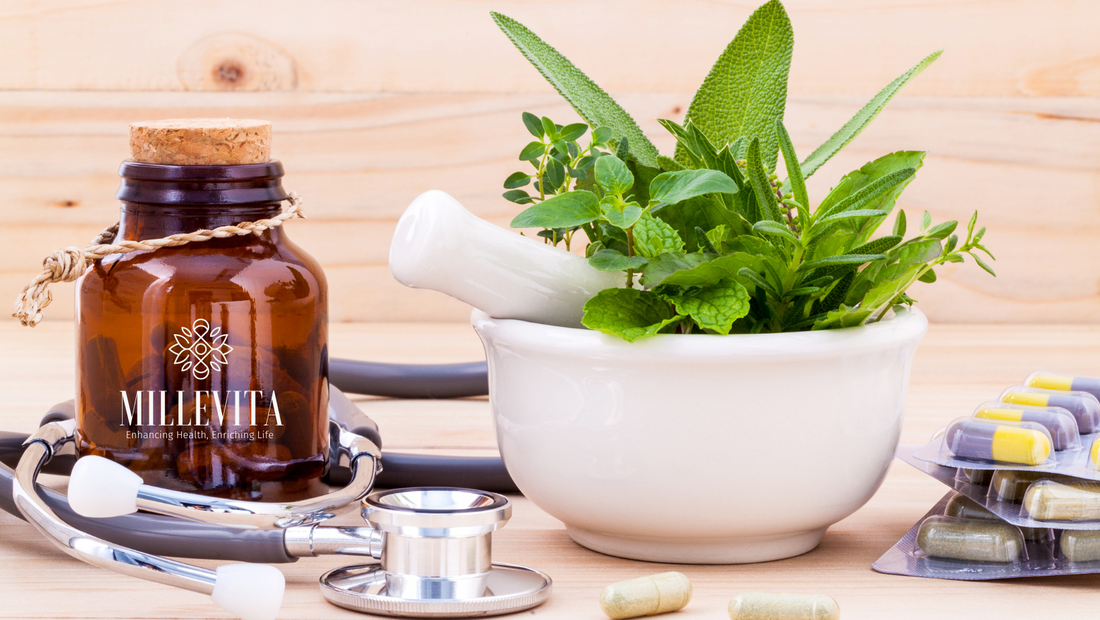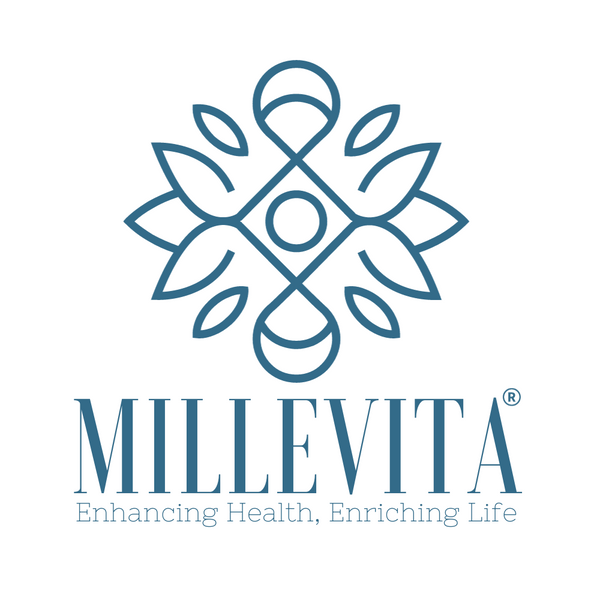
The Power of Herbs for New Moms
Share

The Power of Herbs for New Moms: Supporting Immune Function, Milk Production, and More
Becoming a new mom is a major life transition. Suddenly, you're responsible for the care and well-being of a whole new life, and taking care of yourself can easily fall by the wayside. However, it's important to remember that your health and well-being are just as important as your baby's. One way to take care of yourself is by incorporating herbs into your postpartum routine. Here are some of the best herbs for new moms:
Fenugreek
Fenugreek is a popular herb for lactation support. It's been used for centuries as a milk-making substance, and is believed to increase milk supply in lactating women. Fenugreek is often found in lactation teas, but can also be taken in capsule form. If you're struggling with milk supply, fenugreek can be a helpful tool, but it's important to talk to a lactation consultant first to rule out any biomechanical issues.

Astragalus
Astragalus is a powerful herb for immune support. It's been shown to boost the immune system, fight off infections, and support healthy digestion. For new moms who may be dealing with yeast overgrowth or other digestive issues, astragalus can be especially helpful. It's also a great herb to take as a tea or added to smoothies for an extra boost of immune support.

Schisandra
Schisandra is another herb that's great for immune support. It's packed with antioxidants and polyphenols, which help to fend off infections and boost the body's natural defences. Schisandra can also be helpful for postpartum healing, as it's been shown to reduce inflammation and improve liver function. This herb is often taken as a tincture or added to tea or smoothies.

Holy Basil
Holy basil is a powerful adaptogen that's great for supporting the nervous system and reducing stress. For new moms who may be dealing with postpartum depression or anxiety, holy basil can be especially helpful. It's also a galactagogue, meaning it can help to increase milk supply. Holy basil is most commonly found in tea form, but can also be taken in tincture or capsule form.

Ginseng Root
Ginseng is a staple in Chinese postpartum tradition. It's believed to be an energy-replenishing herb, and is often taken once bleeding stops. Ginseng is an adaptogen, meaning it can help to reduce stress and support the body's natural defences. It's often taken as a tea, but can also be added to smoothies or other foods.

Moringa
Moringa is a powerful herb that's rich in nutrients, including calcium, protein, potassium, iron, zinc, and vitamins A, B, and C. For new moms who may be dealing with postpartum depletion after blood loss at birth, moringa can be especially helpful. It's also been shown to boost milk supply in lactating women. Moringa can be added to smoothies, lattes, or food like soups or dips.

Ashwagandha
Ashwagandha is a calming adaptogen that's great for reducing stress and improving sleep. For new moms who may be dealing with sleep disturbances due to night time feedings, ashwagandha can be a helpful tool. It's often taken as a tea or added to food for an extra boost of calming support.

Conclusion:
becoming a new mom is a major life transition that requires a lot of physical and emotional energy. Incorporating herbs into your postpartum routine can be a helpful way to support your health and well-being. Whether you're struggling with milk supply, dealing with digestive issues, or simply looking for a natural way to boost your energy and immune system, herbs can be a valuable tool. As with any new supplement, it's important to talk to your doctor or midwife before starting any new herbal regimen, especially if you're breastfeeding.
In addition to herbs, it's important for new moms to prioritize self-care. Getting enough rest, eating a healthy diet, and taking time for yourself can all be important ways to support your postpartum health. Consider incorporating gentle exercise, like walking or yoga, into your routine as well.
Finally, it's important to remember that every new mom's postpartum journey is unique. Don't be afraid to reach out for help and support if you need it, whether it's from a lactation consultant, a postpartum doula, or a therapist. Taking care of yourself is an essential part of being a good mom, and there's no shame in asking for help when you need it.
Disclaimer:
The information provided in this blog is intended for general educational and informational purposes only. It is not a substitute for professional medical advice, diagnosis, or treatment. Always seek the advice of your physician or other qualified healthcare provider with any questions you may have regarding a medical condition. The use of herbs is not recommended for everyone, and some herbs may interact with medications or have adverse effects in certain individuals. If you are pregnant, breastfeeding, or have a medical condition, it is important to talk to your doctor or midwife before using any herbal supplements. The author of this blog is not liable for any damages or adverse effects that may result from the use of the information provided in this blog.



